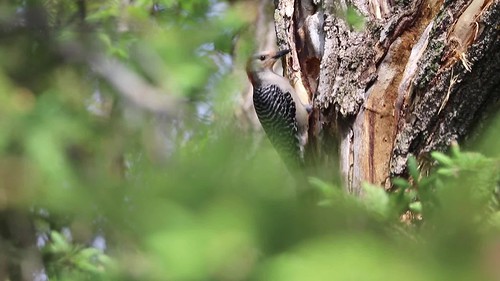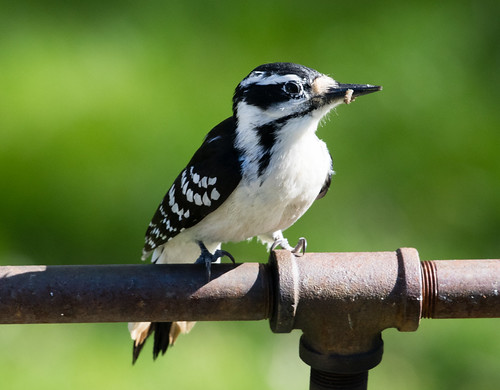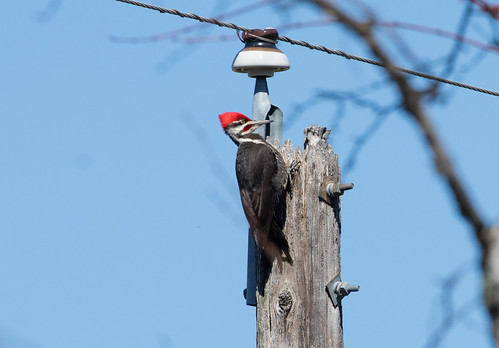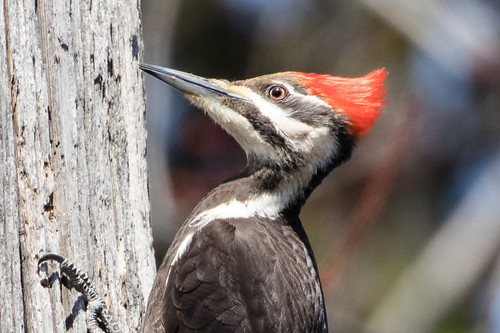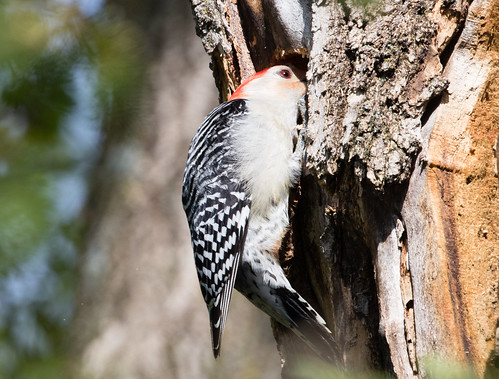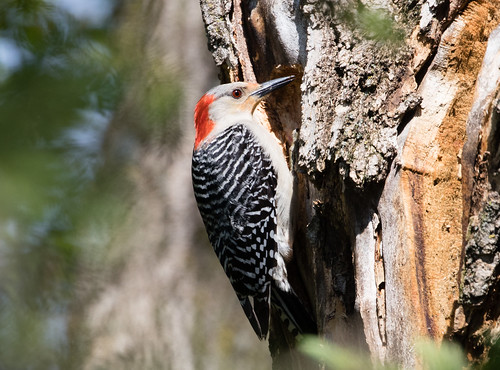My corner of Peabody Street seems to have become Woodpecker
City this year. Last year I had two pairs each of Hairy and Downy Woodpeckers
nesting somewhere near. I’m only regularly seeing one pair of each this year. I
know both species are feeding nestlings now because I’ve seen the parents
carrying large grubs. They don’t feed their young suet or seeds, so they only
visit the feeder during breaks when they want a quick meal for themselves. They’ve
stopped calling almost entirely—an excellent sign that they have more pressing
issues on their mind.
Ryan Brady, one of the best birders I know, did the Great Wisconsin Birdathon Big Day on May 24, and his team saw 158 species, including
a Loggerhead Shrike, Yellow Rail, 2 singing male Kirtland’s Warblers, Northern
Saw-whet Owl, and White-winged Scoter, but they got skunked on Downy
Woodpecker. People seem mystified that this extremely common bird is so often
missed on Big Days in May, but that’s because the best days of migration for the
best birding coincide so precisely with when Downy and Hairy Woodpeckers are
busy with nestlings. By the way, Ryan Brady’s Big Day was a fundraiser for the Natural
Resources Foundation of Wisconsin, which plays an increasingly essential role
in protecting non-game species as the state reduces support. Learn more about
it at wisconservation.org.
A pair of Pileated Woodpeckers is nesting somewhere near my
house. Both the male and female spent a lot of time in March and April yelling
and hammering out their territorial proclamations on the power poles behind my
yard and my neighbor’s.
In the past couple of weeks they’ve been very quiet.
It’s possible they’ve moved on, but much more likely that they’re nesting.
Flickers
have also been calling a lot, but aren’t spending much time right in my own yard.
Most unexpectedly, a pair of Red-bellied Woodpeckers have
been digging out a nest in the maple tree right next to my driveway. I can’t
see them from my upstairs office window, but the digging sounds filter in from
sunrise till sunset. After it dawned on me what they were up to, I went onto
the roof of our front porch, and it turns out I have a perfect view from there,
so I got photos and videos.
I know Red-bellieds nested somewhere in the neighborhood
last year because last September, a family with adults and young turned up in my
yard.
When we moved here in 1981, Red-bellied Woodpeckers were a hotline
bird—the first time I had one at my feeder, that first winter, I called Kim
Eckert and before I could even get out the final syllables of Red-bellied
Woodpecker I heard the phone click. Minutes later, there was Kim on the front
porch. Sadly, the woodpecker had already flown the coop, so Kim had to wait a
few months longer to add it to his St. Louis County list. Now they’re quite
regular up here, but nesting is relatively new, and a pair actually nesting in
my own backyard is cosmically thrilling.
Unfortunately, I’ll be gone to Maine from May 28 through
June 15, so won’t be able to see for myself whether they give up or finish
constructing the nest and start producing and incubating eggs. Once the nest is
finished, it’ll take a few days to a week for the female to lay a full clutch,
and then the pair will take 12 days to incubate them. By then I’ll be home,
anxious to find out if this wonderful pair is really and truly going to produce
babies in my very own maple tree. I love going on adventures, and I love coming
home again. This time, there will be extra excitement in my homecoming.
